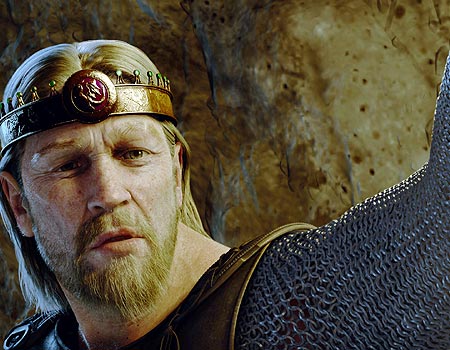We
read a wide variety of literature this semester. My hope is that something you
read: poem, fiction, nonfiction, speech, or article, resonated with your. Pick
one thing we worked on this year, and discuss the impact/affect it had on you.
Did it change the way you think about something or somebody? Did this piece
make you “feel” differently about something or was it simply a decent story –
one you enjoyed reading? Consider the “big picture” products that went along
with each piece and make connections between the piece of literature and the
project. Reflect on what you learned, not just about the piece of literature,
but about yourself. Personal growth is
when we grow – by any means – beyond the normal expectations…
I'm actually having a lot of trouble recalling everything we've read. I really enjoyed Beowulf, The Importance of Being Earnest and Hamlet, and parts of The Divine Comedy and The Canterbury Tales were memorable. Beowulf, The Importance of Being Earnest and Hamlet were probably my favorite things that I read this year, but I'm not convinced that I went through any personal development because of them. I went through personal development, and the stories resonated with me a lot, but that doesn't mean that there is a cause-and-effect relationship, or, at the very least, they weren't the sole cause.
As for why those stories resonated with me, I think it's because the stories are from time periods that are typically romanticized, but the problems being written about are identical to today's society. The same complaints and problems people have today were exactly the same as problems 400+ years ago. It's nice to know that the complaints about my generation being the ruin of society have no substance. It's also nice to know that human behavior hasn't changed a lot.
Looking back on it, a lot of the stories that I like are ones where the characters are well-developed, with clear strengths and weaknesses, and relatable flaws. When human characters are actually human, the stories tend to transcend time. I can relate to Beowulf's quest for glory- it's not hugely different than my desire to go to a good college. His braggart and competitive tendencies are ones that I share, although I am trying to reign this in. I can relate to Hamlet, who is an angsty teenager, because I was (and might still be?) also an angsty teenager. I'd like to believe I'm not, but there are probably people who disagree. The Importance of Being Earnest is something that I mostly found amusing. It's also how I discovered that I will never be an actress. I'm horrible with skits. The stories and poems we read over the year that have dynamic characters are like mirrors, and if you stare at a mirror long enough, you're eventually going to notice something about yourself.
As for what I've learned about myself, that's a bit harder to place. I'm competitive, I exaggerate things (sometimes deliberately, sometimes through faults with memory), I have emotional control issues, I can't act and I can't sing. I have managed to grow with a lot of these things (not acting or singing, though, I would probably need classes for those.). How this helps me grow is simply that, now that I know that they exist, I can work at them. While my emotional problems are largely under control (save for being grumpy in the mornings), it took a long time and a lot of effort to get that way. I hope dealing with competitiveness and exaggeration don't take as long.
English assignments did help me grow as a person, that doesn't mean that I'm completely done growing. It also doesn't mean that I like the effort involved in trying to change negative aspects of my behavior, and that it might take a bit for me to recognize that a negative trait exists, and how to deal with it. I' not really sure how to end this blog, so I guess I'll just end it with this:
“Growth is the great separator between those
who succeed and those who do not. When I
see a person begin to separate themselves from the pack, it’s almost always due
to personal growth…”
-John C. Maxwell
Also, thank you, Mrs. Jarman for everything you have taught me about literature, the world and myself.


